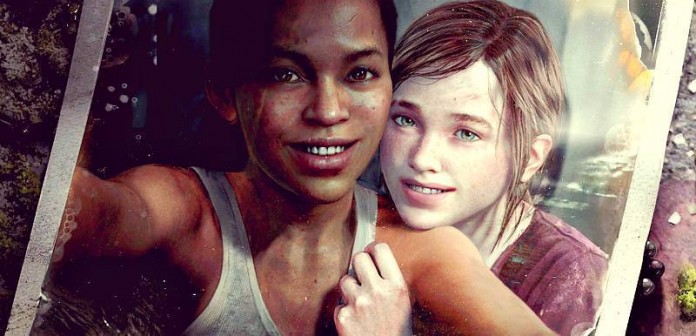Video games have seen a marked shift in how LGBT characters are portrayed within them in recent years, but this isn’t entirely a new trend.
The first instance of a LGBT character appearing in a video game is seen in the 1986 text adventure, “Moonmist”. This game featured a lesbian relationship between a criminal female artist who is jealous because her girlfriend has married a man. Another instance where we see a lesbian character within a video game is “Star Wars: Knights of The Old Republic”, released in 2003. This video game takes place approximately 4,000 years before the Galactic Empire and features a character named Johani who admits her feelings to another female character, Revan. When revealing these feelings to her, Johani doesn’t seem sure of herself and cant quite explain how she feels, but Wookiepedia quotes Juhani as “Quite possibly the Star Wars universe’s first lesbian character.” More recently, “Fallout 3” was released in October 2008 and featured the player meeting a female ghoul named Carol who hints that she is in a relationship with another female ghoul named Greta, and have an adopted son together.
Speaking of LGBT characters appearing in the Fallout franchise, “Fallout 2” is the first video game ever to include a same sex marriage as an option, and the 2010 installment of the series, “Fallout: New Vegas”, contains 2 confirmed LGBT joinable NPC and other references to homosexuality. “Earthbound” features a NPC named Tony who talks about having dreams of going for walks with his roommate Jeff. In an interview with Shigesato Itoi, he reveals that there is a gay person in Earthbound, “A really passionate friend who lives in an England-like place. I designed him to be a gay child. In a normal real life society, there are gay children.” This is obviously referring to Jeff’s roommate, Tony.
Another character, this one more rated E, is Jolly Roger. Jolly Roger is the frog mayor in the “Banjo-Kazooie” series and is known for his flamboyant behavior and flirtatious mannerisms and is thought to be gay. Jolly even sends you on a mission to rescue his “partner”, which is a big, burly man in drag.
Along with lesbian and gay characters, video games are full of bisexual characters. Axton, the commando class character in “Borderlands 2″ was accidentally coded as bisexual, allowing him to flirt with male characters. To confirm Axton is in fact bisexual, Gearbox added dialogue in the DLC expansion “Tiny Tina’s Assault On Dragon Keep”.
Another notable bisexual character is Englishman Eagle from the original “Street Fighter”. Eagle is based off Queen’s lead singer, Freddy Mercury, who was a confirmed bisexual. Based off of this, I think it is reasonable to assume Eagle is also bisexual.
2001’s “Metal Gear Solid 2: Sons Of Liberty” features a boss named Vamp. Solid Snake confirms that Vamp didn’t get his name from his vampire-like behavior, but due to the fact that he is bisexual and in love with Marine Commandant Scott Dolph. Rockstar’s “Bully’s” protagonist is Jimmy Hopkins. Jimmy can regain health by kissing boys and girls around campus, and Jimmy is even made fun of for this by a fellow female student. In “Bully:Scholarship Edition” there is an achievement called “Over The Rainbow” which is unlocked when Jimmy kisses a boy for the twentieth time.
“Super Mario Bros. 2” was the first game to include Birdo. Everyone knows Birdo as one of Mario’s best friends who always gets invited to board game night and Mario’s legendary go-kart tournaments, but here’s something you may not know. The manual for “Super Mario Bros. 2″ lists Birdo as Ostro due to a translation error, “thinks he is a girl” (actual phrasing from the manual — UzerFriendly does not agree with this terminology), which makes Birdo the first transgender video game character in history and a pretty big one at that. Birdo wouldn’t be the last transgender video game character from the 80’s, though. 1989’s “Final Fight” included the villainous Poison. Poison was revealed by Capcom producer Yoshinori Ono to be a post-op male to female transgender fighter. 1995’s time-bending classic “Chrono Trigger” included the powerful magician Flea, a man dressed as a woman who has one of my personal favorite video game quotes of all time: “Male or female, what difference does it make? Power is beautiful, and I’ve got the power.” 2002’s “Guilty Gear” had ordinary butt-kicking teen Bridget, but what many people don’t know is under that nun costume and long blonder hair lies a very male body.
LGBT themes have been in video games since the beginning, and game developers are beginning to get more and more open with diverse characters and learning how to portray a realistic, awesome LGBT character. Will we see any big titles coming soon with a story-driven gay protagonist? Probably not, but we are heading in that direction, and I can’t wait to sit down and play that game when the time does come.


